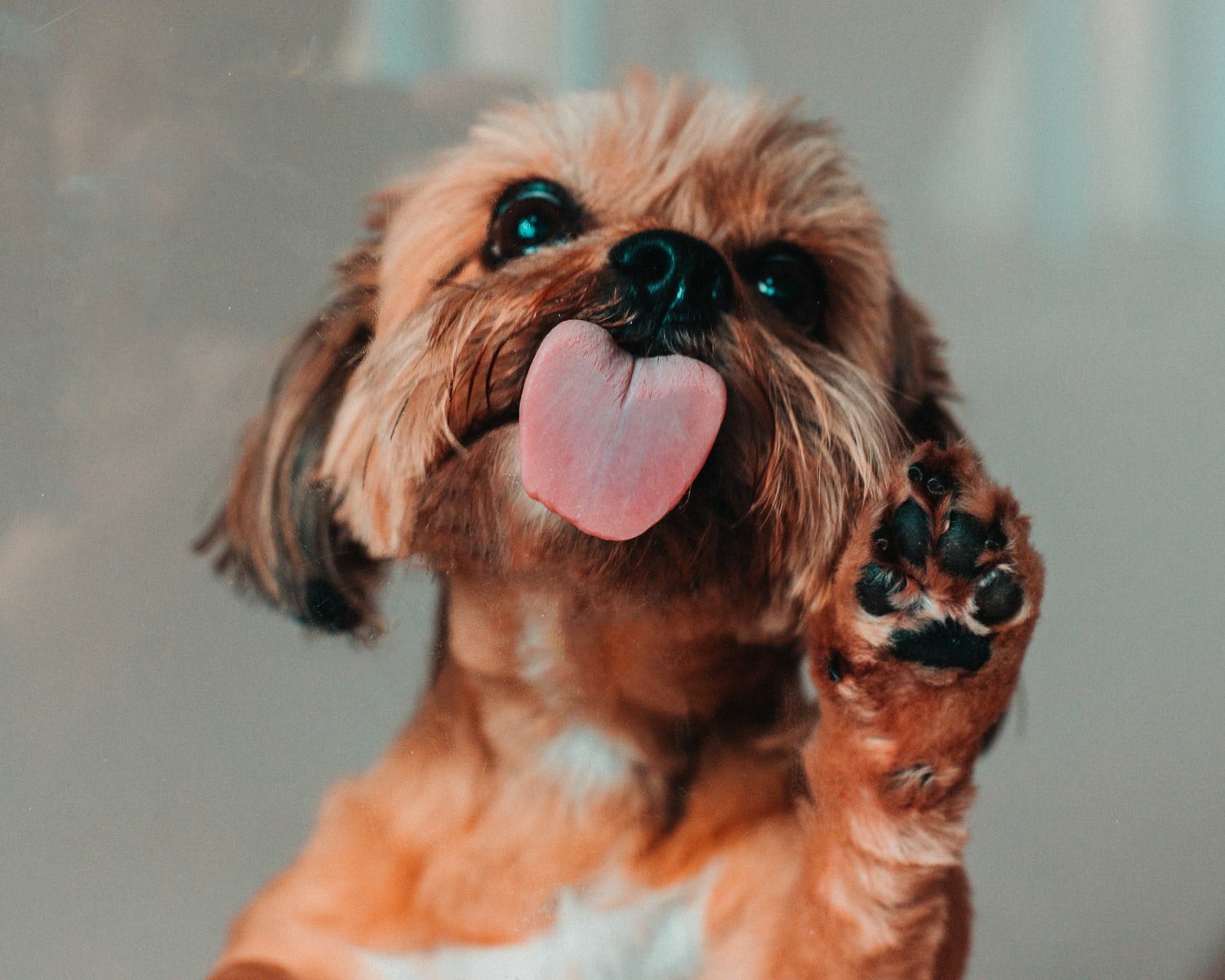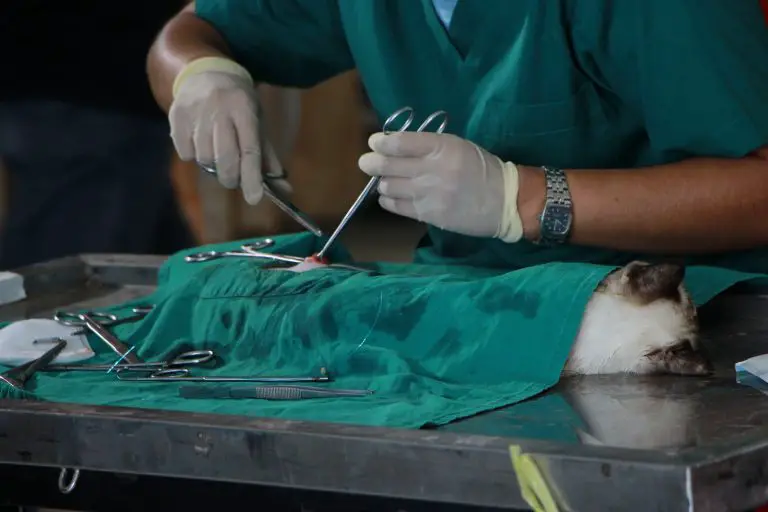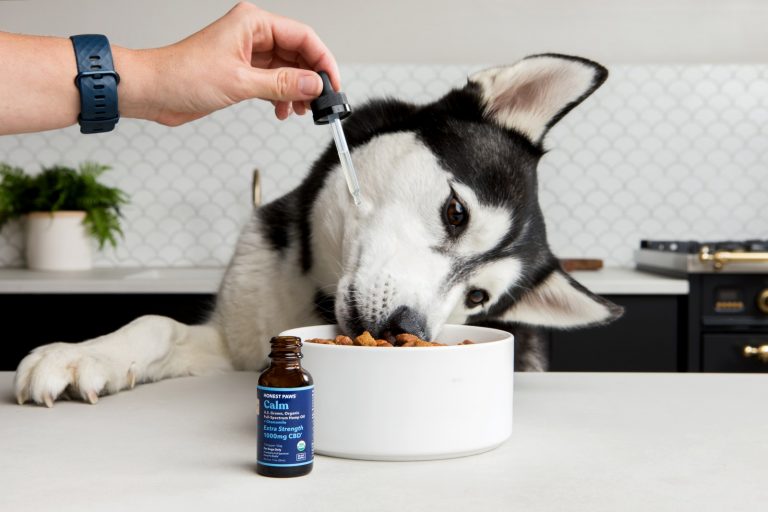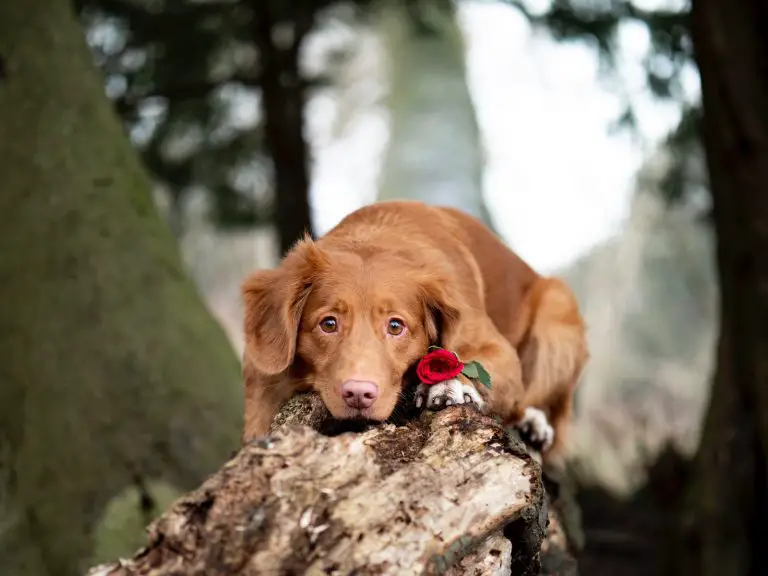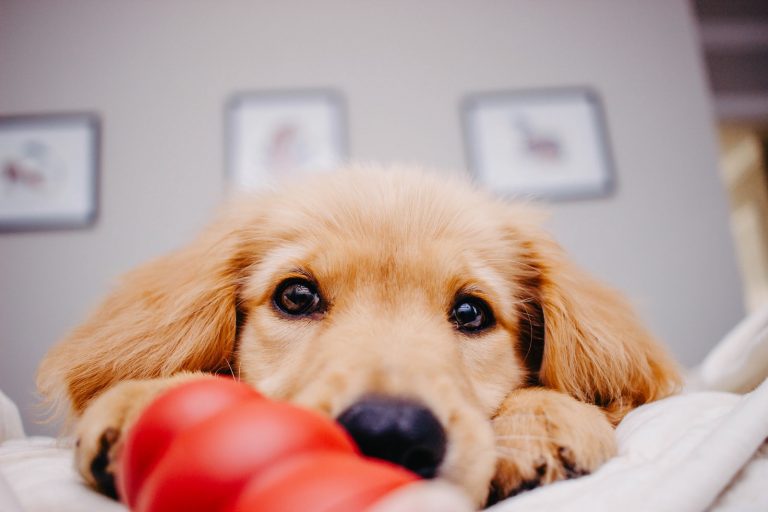One of the most common questions that I hear from dog owners when they come to the grooming salon is, “Why do dogs lick their paws?” I can understand their frustration. Constant licking and chewing can be enough to drive a dog owner nuts! And just when you think you have the problem cleared up, it comes back again.
Sometimes there’s no visible sign of what is causing the licking and it seems like the dog is just licking out of habit. But, the truth is, a lot of the time there is an underlying condition causing the licking and it can be effectively treated and stopped for good.
Most Dogs Lick Their Paws Because Of a Skin Infection
The most common reason that dogs lick their paws is due to a skin infection. There are several different types of skin infections that could be causing your dog to lick his paws. Here is a brief overview of the most common types of skin infections:
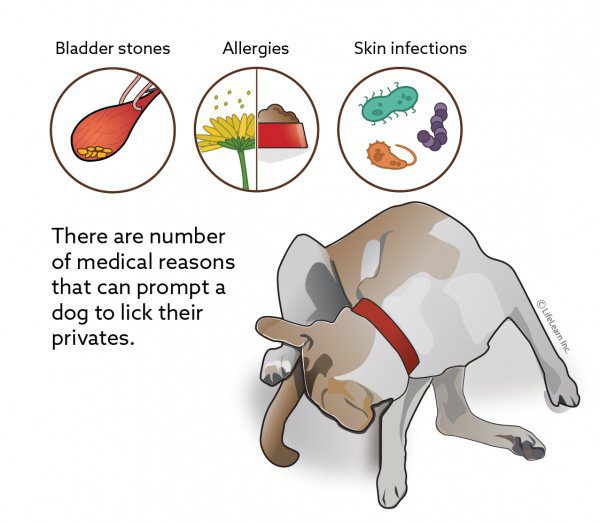
Bacterial Skin Infections
If you examine your dog’s paws and notice red bumps or pimples, bulls eye sores, and flaky skin, a bacterial infection may be the cause of your dog’s licking. Bacterial infections are usually secondary infections caused by a flea infestation or allergies. When your dog scratches or chews due to fleas or allergies, he breaks open the skin. Generally, that is followed by a lot of licking which spread bacteria to the open sores caused by the scratching and chewing.
Ringworm
Ringworm is a fungus that causes circular patches of hair loss that are crusty and red. The patches usually burn and itch.
Seborrhea
If you notice a greasy, smelly coat with redness to the skin seborrhea may be the culprit. Sometimes there will be open sores and dandruff as well.
Yeast
Dogs that are doing lots of biting and licking at their paws, along with itchy ears and chronic ear infections are often plagued by yeast. Yeast is a fungus that grows in moist area like the paws, ears, groin and armpits.
What to Do If You Suspect Your Dog Is Licking His Paws Because Of a Skin Infection
If you suspect that your dog has a skin infection, a visit to the vet is recommended. The vet will run some tests to determine what the exact cause of the infection is and prescribe appropriate medication. It will be critical to prevent your dog from licking his paws during treatment, so the vet will probably recommend he wears an e-collar until the problem is completely cleared up.
I would also recommend giving your dog medicated baths up to 3 times a week, depending on the severity of the infection. Once the infection is cleared up, once a month should be enough to keep the infection from coming back. Use an antiseptic shampoo that contains chlorhexidine and ketoconazole to treat both bacteria and yeast(fungus). Be sure to get between the dog’s toes and pads of the feet well, and leave the shampoo on for 10-15 minutes before rinsing.
Some pet owners find that cutting wheat, corn, and soy from their dog’s diet helps to prevent skin infections and licking that are brought on by allergies. Also, try adding Omega 3,6, and 9 fish oil and digestive enzymes combined with probiotics to your dog’s diet. These supplements may strengthen your dog’s immune system and help him fight off the infection faster and keep it from coming back.
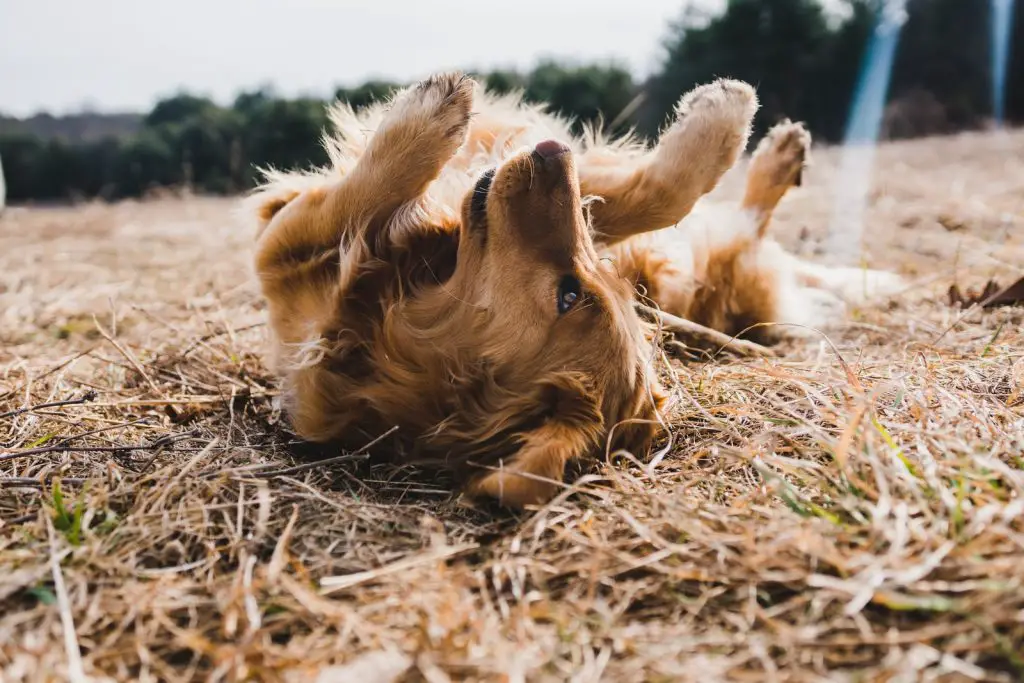
Other Things That May Cause Your Dog to Lick His Feet
Pain
If your dog is suddenly licking only one paw, but not the others, it could be an indicator of pain, especially if limping accompanies the licking. Check the area carefully for sores, cuts, thorns or other foreign objects. If you can’t resolve the problem at home, check with his vet for advice. Here is a great article that explains why your dog may be limping, and what to do about it.
Allergies
Some dogs have food allergies to things like beef, chicken, wheat, corn and soy. Other dogs have environmental allergies to things like mold, grass and pollen. These allergies could be causing your dog’s itching and subsequent licking of his feet. Your vet can run some tests to find out exactly what your dog is allergic to and offer advice on treatment.
In the meantime, try to eliminate common food allergens from his diet and avoid artificial additives. If you suspect an environmental allergy, try washing his feet as soon as he comes in from outside and keep his walks short during pollen season.
It is very important to resolve your dog’s allergy problems as quickly as possible. As mentioned above, the licking, scratching and chewing that comes with allergies can quickly lead to bacterial skin infections.
Boredom and Anxiety
Does your dog spend a lot of time at home by himself? A high-energy dog will quickly become bored, and sometimes anxious. Licking and chewing the paws and other destructive behaviors are often the result. Try giving him something safe to chew on when you’re not home, and make sure he’s getting lots of exercise and attention when you are home.
Dry Skin
Dry skin is common during cold winter months. Avoid excessive bathing if your dog has dry skin, and try a fish oil supplement.
Fleas or Ticks
Fleas and Ticks are another common cause of licking and chewing at the feet. Fleas and ticks love to hide in the moist area between the toes and pads of the feet. Inspect your dog’s feet carefully if he is licking or chewing, looking for signs of fleas or ticks.
If you see fleas or ticks, follow these steps to get rid of them:
- Treat your pet by giving him a flea and tick bath.
- Use apple cider vinegar in sprays
- Treat your home with by vacuuming thoroughly, washing all pet bedding, and spraying the home with a premise spray.
- Treat your yard for fleas and ticks by hiring a professional lawn company or doing it yourself with a product from the store.
- Be sure to treat your pet, your home, and your yard all on the same day. Repeat each step every seven days until the fleas and ticks are gone. It may be necessary to repeat these steps once a month all during flea season.
- If fleas and ticks are bad in your area, talk to your vet about a monthly flea preventative for your pet.
- Dog’s may lick their paws for many different reasons. With a little detective work, you can figure out the cause, treat it, and get some relief for you and your pet.

